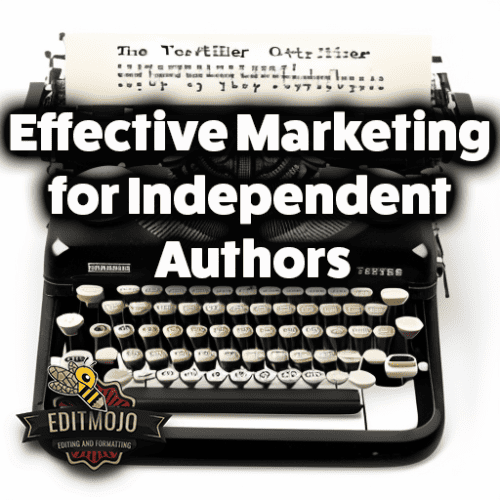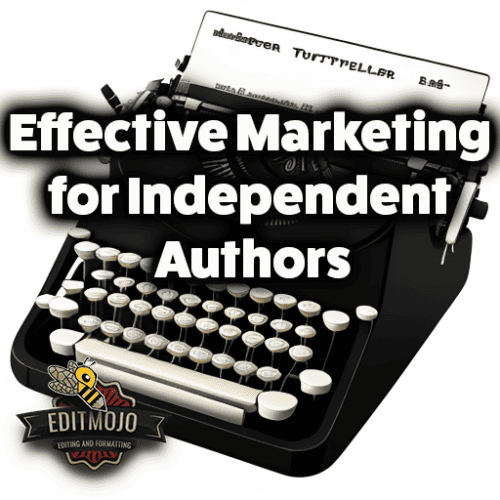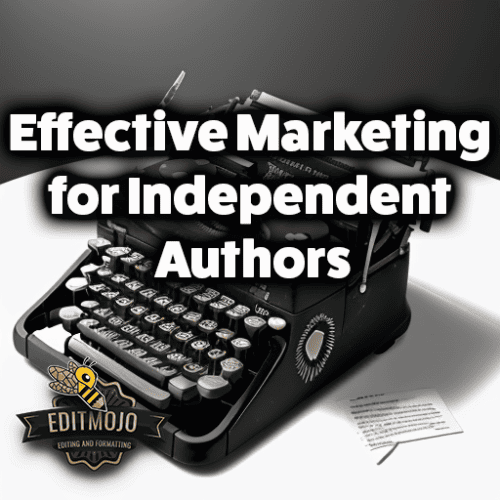Effective Marketing for Independent Authors
Effective Marketing for Independent Authors. Marketing is a daunting word for many independent authors. You may prefer the solitary, imaginative work of writing, but in today’s publishing landscape, marketing has become an essential part of the author’s journey. Especially if you’re self-publishing. You’re not just an author; you’re an entrepreneur running a small business. And that business’s success depends on effective marketing.
This article aims to demystify marketing for independent authors. It offers practical strategies and tools to help you connect with readers and sell more books. This is not a get-rich-quick scheme, but a comprehensive guide for long-term success.
Key Takeaways Table
| Key Areas | Takeaways |
|---|---|
| Understanding Marketing | Marketing is crucial for independent authors to stand out in a crowded market. |
| Target Audience | Identifying and understanding your target audience is the first step in marketing. |
| Branding | Your unique author brand and selling proposition can set you apart from other authors. |
| Marketing Tools | Author websites, email marketing, social media, and SEO are essential marketing tools for authors. |
| Online Marketplaces | Understand how to use online marketplaces like Amazon, Kobo, Apple Books, and Barnes & Noble to boost your visibility and sales. |
| Building Relationships | Engage with your readers through an author blog, email newsletters, and social media to build a loyal fanbase. |
| Reviews | Book reviews provide social proof and can improve your visibility on online marketplaces. Encourage readers to leave reviews. |
| Collaborations | Teaming up with other authors can help you reach a larger audience. |
| Advertising and Promotions | Paid advertising and promotions can boost your book’s visibility and create buzz. Target your ads to your intended audience. |
| Measuring Success | Track key metrics like book sales, website traffic, email subscribers, and social media engagement to understand and improve your marketing. |
| Future Trends | Stay ahead of future trends and technologies in book marketing to seize new opportunities. |
Understanding the Importance of Marketing for Independent Authors
With digital technologies transforming how books are published and read, the barriers to entry in the publishing world have never been lower. This is a double-edged sword, however. The good news is that it’s now possible for anyone to publish a book. The bad news? It’s now possible for anyone to publish a book.
This democratization of publishing means that the market is flooded with new books every day. How does your book stand out in such a crowded field? The answer is effective marketing.
Know Your Readers: Target Audience Identification
Just as you can’t write a book for ‘everyone,’ you can’t market to ‘everyone’ either. Your first step in marketing your book should be to identify your target audience. These are the people who are most likely to enjoy your book, and thus, most likely to buy it.
Once you’ve identified your target audience, you can tailor your marketing efforts to appeal to them. If you’re writing young adult fantasy, for instance, you’ll want to focus your marketing efforts on platforms popular with that demographic, such as Instagram or TikTok.

Crafting Your Unique Brand
As an independent author, you are your brand. Readers aren’t just buying your book; they’re buying into you. It’s therefore important to present a consistent image across all your marketing platforms, whether that’s your author website, social media profiles, or email newsletters.
Your unique selling proposition (USP) is what sets you apart from other authors. It might be your unique voice, your in-depth knowledge of a particular topic, or the distinctive way you blend genres. Whatever it is, make sure it shines through in all your marketing materials.
Essential Marketing Tools for Independent Authors
In today’s digital age, a well-designed author website is crucial. It’s the hub of your online presence, where readers can find out about you and your books, sign up for your newsletter, and connect with you on social media.
Email marketing remains one of the most effective ways to engage with readers. By building a subscriber list, you’re building a loyal fanbase who are interested in hearing about your new books and other updates.
Social media can be a powerful tool for reaching new readers and engaging with existing ones. The key is to choose the platforms where your target audience spends their time and to use those platforms in a way that provides value, rather than just selling.
SEO, or search engine optimization, is another important tool for independent authors. By optimizing your online presence for search engines, you can attract readers who are actively searching for books like yours.
Utilizing Online Marketplaces
While your author website is important, most of your book sales will likely come from online marketplaces like Amazon, Kobo, Apple Books, and Barnes & Noble. Understanding how these platforms work, and how to make the most of their algorithms, can significantly boost your visibility and sales.
For instance, regularly updating your book’s metadata on Amazon can make it easier for readers to find your book. And enrolling in KDP Select can increase your visibility through
Kindle Unlimited and Kindle Owners’ Lending Library.

Building Relationships with Your Readers
In today’s interconnected world, readers want to feel a personal connection with authors. One way to build this connection is through an author blog, where you can share updates about your writing process, insights into your books, and more.
Email newsletters are another powerful tool for building relationships with readers. They provide a direct line of communication, allowing you to engage with your readers on a more personal level.
Don’t forget about social media, either. From quick updates on Twitter to live Q&A sessions on Facebook or Instagram, social media provides countless opportunities to interact with your readers and build a sense of community.
Garnering Reviews and Recommendations
Book reviews play a crucial role in a reader’s decision-making process. They provide social proof that your book is worth reading, and they can also improve your book’s visibility on online marketplaces.
Encouraging reviews can be as simple as asking your readers. Include a note at the end of your book asking readers to leave a review if they enjoyed it. Or, reach out to your email subscribers or social media followers with a similar request.
Collaborative Marketing: Networking with Other Authors
One of the most overlooked marketing strategies for independent authors is author collaborations. By teaming up with other authors, especially those who write in a similar genre, you can reach a larger audience.
Author collaborations can take many forms. You might co-write a book, cross-promote each other’s books, or host joint events like webinars or book tours. The key is to find like-minded authors who share a similar audience.

Advertising and Promotions for Independent Authors
Paid advertising can be an effective way to boost your book’s visibility and reach more readers. The key is to carefully target your ads to your intended audience. Amazon Advertising, BookBub Ads, and Facebook Ads are all popular options for authors.
Another effective strategy is to run promotions. This might be a limited-time price reduction, a freebie for newsletter subscribers, or a giveaway contest. Not only can these promotions boost sales, but they can also create buzz around your book.
Measuring the Success of Your Marketing Efforts
As with any business venture, it’s important to track the results of your marketing efforts. This can help you understand what’s working, what’s not, and how you can improve.
For authors, key metrics might include book sales, website traffic, email subscribers, and social media engagement. By regularly reviewing these metrics, you can make data-driven decisions about your marketing strategy.
Case Studies: Success Stories of Independent Authors
There are many examples of independent authors who have achieved success through effective marketing. For instance, Mark Dawson, a thriller author, has built a successful career through savvy use of Facebook Ads and email marketing. And romance author Courtney Milan has used her strong author brand and engaged fanbase to hit the New York Times bestseller list.
Future Trends in Marketing for Independent Authors
As technology continues to evolve, so too will the marketing landscape for independent authors. Emerging tools and platforms, such as virtual reality and blockchain, could provide new opportunities for authors to connect with readers and sell books.
In this fast-paced digital age, it’s more important than ever for authors to stay ahead of the curve. So, keep learning, keep experimenting, and most importantly, keep writing. Because at the end of the day, the best marketing strategy is to write a great book that readers can’t wait to recommend to others.
Conclusion (Effective Marketing for Independent Authors)
Marketing may not be the reason you became a writer, but it’s a vital part of being an independent author today. It’s not about selling out or being salesy. It’s about connecting with readers, sharing your stories with the world, and building a sustainable career as a writer.
Marketing may be complex, but it’s not impossible. With the right tools, strategies, and mindset, you can effectively market your books and find your readers. So, embrace the journey, because your story deserves to be heard.
Additional Resources
For more guidance on marketing for independent authors, check out the following resources:
- “How to Market a Book” by Joanna Penn: A comprehensive guide to book marketing with practical, actionable advice.
- The Creative Penn: A wealth of resources on writing, publishing, and marketing for independent authors.
- The Alliance of Independent Authors: Offers advice, support, and a community for independent authors.
- Reedsy Blog: Contains numerous articles and tips on book marketing, among other topics.
- BookBub’s Insights Blog: Offers marketing tips, author interviews, and case studies on successful book marketing campaigns.
Top Five Questions and Answers Table
| Questions | Answers |
|---|---|
| Why is marketing important for independent authors? | With a crowded book market, marketing is crucial for independent authors to stand out and reach their target audience. |
| How can I identify my target audience? | Look at the demographic and psychographic characteristics of people who are likely to enjoy your book. This could include age, gender, interests, and reading habits. |
| What are some essential marketing tools for independent authors? | Essential marketing tools include an author website, email marketing, social media, and search engine optimization (SEO). |
| How can I encourage more reviews for my book? | You can encourage more reviews by simply asking your readers, whether at the end of your book or in your email newsletters and social media posts. You can also consider reaching out to book bloggers or offering advanced reader copies (ARCs) for early reviews. |
| How can I measure the success of my marketing efforts? | You can measure success by tracking key metrics such as book sales, website traffic, email subscribers, and social media engagement. Use these metrics to understand what’s working and what needs improvement. |
